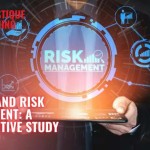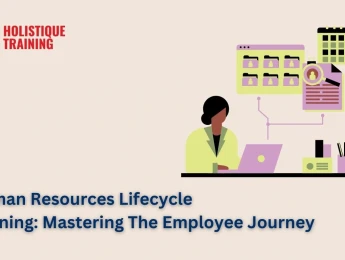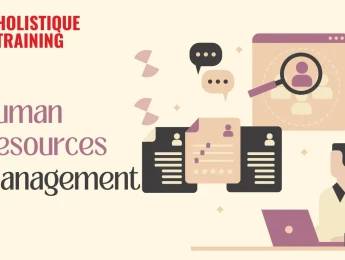Businesses are changing all the time. Change is a positive thing and is required to keep growing and increasing profits and turnover. However, change always comes with risks. These might be financial risks or risks to quality, products, or processes.
It’s important that human resources professionals understand the risks in their area due to company change and the implications on employees, processes, and the wider business.
Human resources can also help businesses identify risks using reporting, employee tracking, and comparisons with competitor businesses. They can also respond to on-site risks regarding health and safety or employee recruitment, management, and retention.
To fully fulfil the HR role, professionals in this area must evaluate business performance against key performance indicators and ISO standards to understand where the business needs to be heading in the future. They will also need to forecast and avoid or mitigate risk elements along the way to maintain company success and profits.
Upon completion of this course, participants will be able to:
- Evaluate the current processes and procedures and understand their efficiency.
- Develop accurate reports and understand how these affect the future of the business.
- Create regular audit processes and understand how the business is changing.
- Review the previous reporting and understand how lessons could be learned from past performance.
- Gain information on financial risks based on employee turnover, training, performance management, and salaries.
- Use this information to develop a long-term action plan.
- Develop a business continuity plan if something goes wrong.
- Reassess your company roadmap and pinpoint potential risk areas or single points of failure.
- Develop presentations and project plans to mitigate risk elements and present them to stakeholders and partners.
This course is designed for anyone in human resources responsible for identifying risk areas across the business. It would be most beneficial for:
- Business Owners
- Directors
- Operations Managers
- HR Professionals
- HR Managers
- HR Auditors
- HR Administrators
- Supervisors
- Recruitment Professionals
- Employee Retention Professionals
- Risk Assessors
This course uses various adult learning methods to aid full understanding and comprehension. Participants will view presentations and videos which discuss the importance of risk assessments during periods of change. They will conduct group discussions to fully understand risk areas within their current processes and use the learned tools and techniques to develop a roadmap for the future and a business continuity plan to cover all bases. Finally, they will discuss their plans for change, reasoning, and risk mitigation methods with the group to gain feedback and understand further areas for development.
Day 5 of each course is reserved for a Q&A session, which may occur off-site. For 10-day courses, this also applies to day 10
Section 1: What is Risk & Where to Find it
- Your role as an HR professional.
- Defining risk areas.
- The benefits of risk management in your area.
- The barriers to managing risk.
- The various categories of risk.
- ISO frameworks and principles.
- Criteria-based risk.
Section 2: Identifying Your Current Risks
- Your risk assessment.
- The areas you should study.
- How to identify risks.
- Risk analysis tools and techniques.
- Key risk indicators.
- Key performance indicators and how they measure up to risk.
- Creating a risk register.
- Health and safety considerations.
- People risks vs. process risks.
Section 3: The Analysis Stage
- Accurate record keeping.
- Change management procedures, documentation, and auditing.
- Upside-down and downside-up risk responses.
- Feedback, surveys, and data-driven responses.
- Your risk management plan implementation based on data.
Section 4: Managing Risks & Business Continuity Planning
- Defining your performance objectives.
- Business continuity planning (BCP).
- Emergency responses.
- Crisis management planning.
- Lessons learned to debrief.
Section 5: Your Risk Management Processes & Evaluation
- Your risk management overview.
- Evaluation of effectiveness.
- Incident investigation and recording.
- Quality assurance and continuous improvement roadmap and planning.
- Compliance and information governance.
Section 6: Human Capital Risk
- Developing your critical thinking skills.
- Problem-solving using data and outside-the-box thinking.
- Innovative planning and change monitoring.
- Insurance and data organisation.
- Employee culture, ethics, and behaviours monitoring.
- Intellectual property risks.
- Compliance and regulations.
- Cybersecurity, automation, and IT regulations.
- Supply chain risk and management.
Upon successful completion of this training course, delegates will be awarded a Holistique Training Certificate of Completion. For those who attend and complete the online training course, a Holistique Training e-Certificate will be provided.
Holistique Training Certificates are accredited by the British Assessment Council (BAC) and The CPD Certification Service (CPD), and are certified under ISO 9001, ISO 21001, and ISO 29993 standards.
CPD credits for this course are granted by our Certificates and will be reflected on the Holistique Training Certificate of Completion. In accordance with the standards of The CPD Certification Service, one CPD credit is awarded per hour of course attendance. A maximum of 50 CPD credits can be claimed for any single course we currently offer.
- Course Code PH1-118
- Course Format Classroom, Online,
- Duration 5 days














